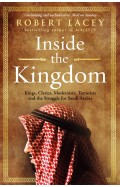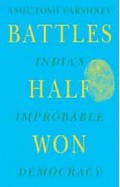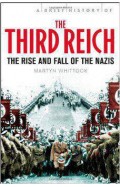- Home
- Books
- Categories
- Non Fiction
- History
- Political
- Twilight of Democracy: The Failure of Politics and the Parting of Friends
Twilight of Democracy: The Failure of Politics and the Parting of Friends
By: Anne Applebaum
-
Rs 2,335.50
- Rs 2,595.00
- 10%
You save Rs 259.50.
Due to constant currency fluctuation, prices are subject to change with or without notice.
Anne Applebaum is a leading historian of communism and a penetrating investigator of contemporary politics. Here she sets her sights on the big question, one with which she herself has been deeply engaged in both Europe and America: how did our democracy go wrong? This extraordinary document, written with urgency, intelligence and understanding, is her answer. Timothy Snyder
Friendships torn. Ideals betrayed. Alliances broken. In this, her most personal book, a great historian explains why so many of those who won the battles for democracy or have spent their lives proclaiming its values are now succumbing to liars, thugs and crooks. Analysis, reportage and memoir, Twilight of Democracy fearlessly tells the shameful story of a political generation gone bad. David Frum
In the years just before and after the fall of the Berlin Wall, people from across the political spectrum in Europe and America celebrated a great achievement, felt a common purpose and, very often, forged personal friendships. Yet over the following decades the euphoria evaporated, the common purpose and centre ground gradually disappeared, extremism rose once more and eventually - as this book compellingly relates - the relationships soured too.
Anne Applebaum traces this history in an unfamiliar way, looking at the trajectories of individuals caught up in the public events of the last three decades. When politics becomes polarized, which side do you back? If you are a journalist, an intellectual, a civic leader, how do you deal with the re-emergence of authoritarian or nationalist ideas in your country? When your leaders appropriate history, or pedal conspiracies, or eviscerate the media and the judiciary, do you go along with it?
Twilight of Democracy is an essay that combines the personal and the political in an original way and brings a fresh understanding to the dynamics of public life in Europe and America, both now and in the recent past.
Anne Applebaum is a leading historian of communism and a penetrating investigator of contemporary politics. Here she sets her sights on the big question, one with which she herself has been deeply engaged in both Europe and America: how did our democracy go wrong? This extraordinary document, written with urgency, intelligence and understanding, is her answer. Timothy Snyder
Friendships torn. Ideals betrayed. Alliances broken. In this, her most personal book, a great historian explains why so many of those who won the battles for democracy or have spent their lives proclaiming its values are now succumbing to liars, thugs and crooks. Analysis, reportage and memoir, Twilight of Democracy fearlessly tells the shameful story of a political generation gone bad. David Frum
In the years just before and after the fall of the Berlin Wall, people from across the political spectrum in Europe and America celebrated a great achievement, felt a common purpose and, very often, forged personal friendships. Yet over the following decades the euphoria evaporated, the common purpose and centre ground gradually disappeared, extremism rose once more and eventually - as this book compellingly relates - the relationships soured too.
Anne Applebaum traces this history in an unfamiliar way, looking at the trajectories of individuals caught up in the public events of the last three decades. When politics becomes polarized, which side do you back? If you are a journalist, an intellectual, a civic leader, how do you deal with the re-emergence of authoritarian or nationalist ideas in your country? When your leaders appropriate history, or pedal conspiracies, or eviscerate the media and the judiciary, do you go along with it?
Twilight of Democracy is an essay that combines the personal and the political in an original way and brings a fresh understanding to the dynamics of public life in Europe and America, both now and in the recent past.
Twilight of Democracy: The Failure of Politics and the Parting of Friends
By: Anne Applebaum
Rs 2,335.50 Rs 2,595.00 Ex Tax :Rs 2,335.50
Gulag - A History of the Soviet Camps
By: Anne Applebaum
Rs 1,317.25 Rs 2,395.00 Ex Tax :Rs 1,317.25
Twilight of Democracy - The Failure of Politics and the Parting of Friends
By: Anne Applebaum
Rs 1,816.75 Rs 2,795.00 Ex Tax :Rs 1,816.75
Zubin Mehta: A Musical Journey (An Authorized Biography)
By: VOID - Bakhtiar K. Dadabhoy
Rs 472.50 Rs 1,050.00 Ex Tax :Rs 472.50
Iran and Pakistan Security Diplomacy and American Influence
By: Alex Vatanka
Rs 6,295.50 Rs 6,995.00 Ex Tax :Rs 6,295.50
The Great Imperial Hangover : How Empires Have Shaped the World
By: Samir Puri
Rs 1,751.75 Rs 2,695.00 Ex Tax :Rs 1,751.75
Waves Across the South: A New History of Revolution and Empire
By: Sujit Sivasundaram
Rs 1,426.75 Rs 2,195.00 Ex Tax :Rs 1,426.75
The Origins of Political Order From Prehuman Times to the French RevolutioN
By: Francis Fukuyama
Rs 3,505.50 Rs 3,895.00 Ex Tax :Rs 3,505.50
Battles Half Won : Indias Improbable Democracy
By: Ashutosh Varshney
Rs 2,726.75 Rs 4,195.00 Ex Tax :Rs 2,726.75
Curzon's India: Networks of Colonial Governance, 1899-1905
By: Dhara Anjaria
Rs 895.50 Rs 995.00 Ex Tax :Rs 895.50
A Brief History of The Third Reich: The Rise and Fall of the Nazis - Paperback
By: Martyn Whittock
Rs 1,795.50 Rs 1,995.00 Ex Tax :Rs 1,795.50
US Policy in Afghanistan and Iraq
By: Seyom Brown & Robert H. Scales
Rs 2,515.50 Rs 2,795.00 Ex Tax :Rs 2,515.50
The Peacemakers: India and the Quest for One World
By: Manu Bhagwan
Rs 552.50 Rs 850.00 Ex Tax :Rs 552.50
Iran and Pakistan Security Diplomacy and American Influence
By: Alex Vatanka
Rs 6,295.50 Rs 6,995.00 Ex Tax :Rs 6,295.50
The Great Imperial Hangover : How Empires Have Shaped the World
By: Samir Puri
Rs 1,751.75 Rs 2,695.00 Ex Tax :Rs 1,751.75
Waves Across the South: A New History of Revolution and Empire
By: Sujit Sivasundaram
Rs 1,426.75 Rs 2,195.00 Ex Tax :Rs 1,426.75
No recently viewed books available at the moment.
Zubin Mehta: A Musical Journey (An Authorized Biography)
By: VOID - Bakhtiar K. Dadabhoy
Rs 472.50 Rs 1,050.00 Ex Tax :Rs 472.50
Twilight of Democracy: The Failure of Politics and the Parting of Friends
By: Anne Applebaum
Rs 2,335.50 Rs 2,595.00 Ex Tax :Rs 2,335.50
Gulag - A History of the Soviet Camps
By: Anne Applebaum
Rs 1,317.25 Rs 2,395.00 Ex Tax :Rs 1,317.25
Twilight of Democracy - The Failure of Politics and the Parting of Friends
By: Anne Applebaum
Rs 1,816.75 Rs 2,795.00 Ex Tax :Rs 1,816.75
Iran and Pakistan Security Diplomacy and American Influence
By: Alex Vatanka
Rs 6,295.50 Rs 6,995.00 Ex Tax :Rs 6,295.50
The Great Imperial Hangover : How Empires Have Shaped the World
By: Samir Puri
Rs 1,751.75 Rs 2,695.00 Ex Tax :Rs 1,751.75
Waves Across the South: A New History of Revolution and Empire
By: Sujit Sivasundaram
Rs 1,426.75 Rs 2,195.00 Ex Tax :Rs 1,426.75












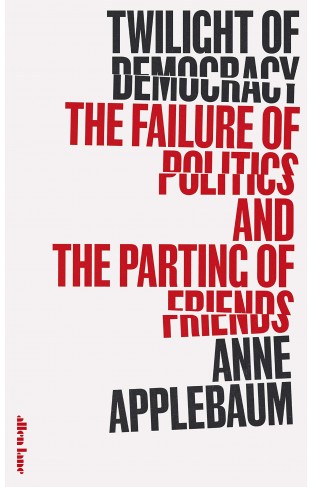
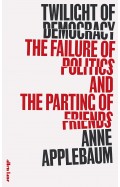

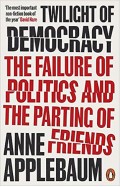
-120x187.jpg?q6)





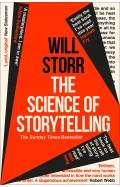

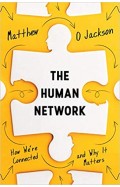


-120x187.jpg?q6)
